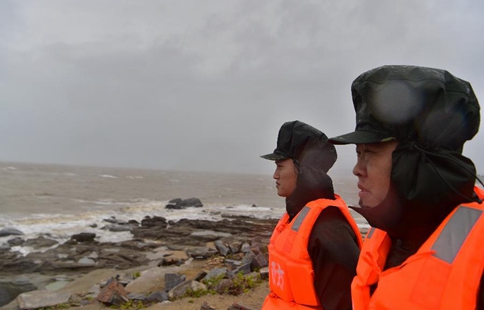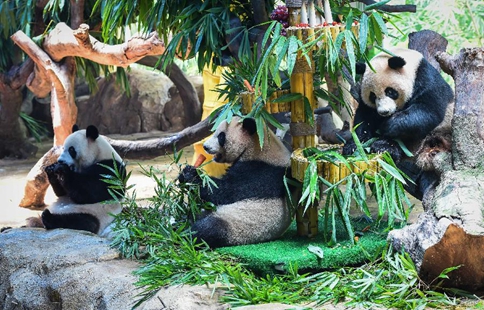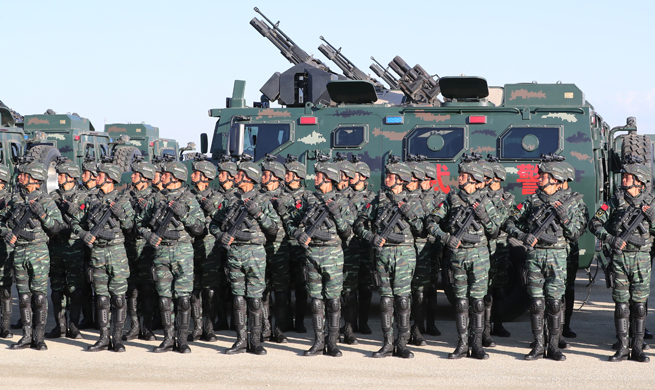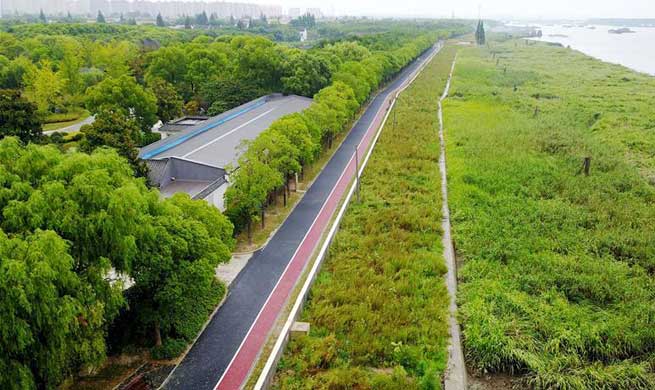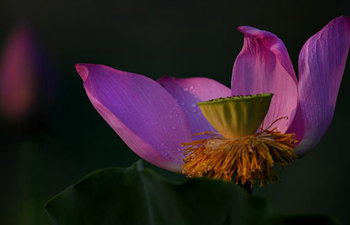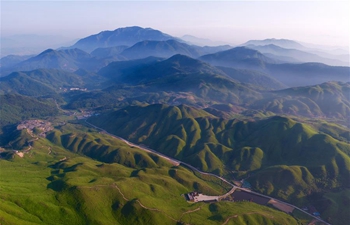by Nguon Sovan, Mao Pengfei
SIEM REAP, Cambodia, July 30 (Xinhua) -- Situated about 20 km from the Angkor world heritage site in northwestern Cambodia's Siem Reap province, Run Ta Ek eco-village has found a green approach to reduce poverty.
Founded in 2004, the eco-village has forged a partnership with Apsara Authority, which manages the 401-sq-km Angkor archeological park, said Mey Marady, director of the Run Ta Ek eco-village development project.
The 1,012-hectare eco-village is one of the first all-solar homestay projects in Cambodia and helps educate tourists on history, culture, flora, fauna, and wildlife that can still be found around the area.
He said the village can accommodate around 850 families, and to date, the Apsara Authority has given homes and lands free to over 100 families to support the homestay program through farming and tourism-related jobs.
The village establishment was to deal with the growing population inside the park, he said, adding that the population inside the park was only 100,000 people 20 years ago, but now there were over 100,000 families.
"Our objective is to save the world heritage site," he told Xinhua. "The government gives a house and a hectare of farmland free to whoever volunteers to leave their houses in the Angkor protected area," he said.
He said at the eco-village, they could earn incomes by renting their homestay to tourists and by growing organic crops and raising animals.
"Some families can make around 300 to 500 (U.S.) dollars per month, which is not bad," he said. "The (eco-village's) concept is planning to turn this place into a unique place in Cambodia and in Asia."
Run Ta Ek eco-village is a solar-powered property with water from a windmill water pump. Featuring chalets with a patio, the homestay also has its own organic farm and restaurant.
"The tourists come here, we don't treat them as strangers, we treat them as a part of our family... they get up the same time as our locals get up, they go to rice fields, go to fish, come back and make food here and there, so whatever daily lives do, they do," he said.
Yoeum Pich, 38, a mother of two, said she used her house as a homestay for tourists as her family moved to a cottage built at her farmland.
"In the past two years, we have seen an increase in foreign tourists to the village," said Pich, who came to live in the village six years ago. "Seven or eight groups (of tourists) come to stay at my home every month, and one night stay costs 15 U.S. dollars."
For food, she said tourists can enjoy at a restaurant in the village.
Pich said she could earn about 300 dollars per month from renting her homestay and selling vegetables grown at her farm.
Jahare Bin Abu Bakar, group general manager of government and industry relations at Malaysia's Ministry of Rural and Regional Development, said the eco-village was very impressive and would play a role in reducing poverty in the long run.
"I found this project is very impressive. This is a good innovation from the government of Cambodia in order to reduce the poverty level in this rural area," he told Xinhua during an ASEAN-China field trip to the village.
"I strongly believe this kind of project will benefit the rural people and the country," he said.




